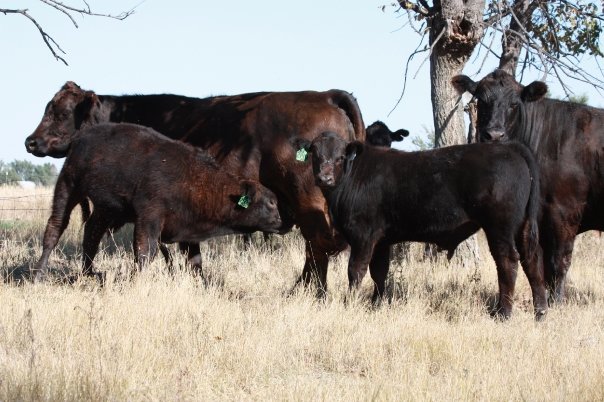Blockchain to bring transparency to beef business
By 2019, blockchain beef will hit the shelves, but will consumers be willing to pay for it?
August 28, 2018

As a Millennial, it might be easy to stereotype me as an early adapter and part of a generation who is ready to embrace change and try out the latest and greatest gadgets and technology; however, my younger Generation Z sister often reminds me that being 30 makes me old and out of touch.
And perhaps in comparison to her, I am. I came of age before smartphones, online dating and Apple watches. I still remember life before the internet, and it doesn’t seem that long ago that we had the old brick cell phones in our pickups. We played Oregon Trail on the computer, and our slow dialup connections made us wonder if this internet business was all it was cracked up to be.
READ: First millennials, now Gen Z - Tips on how to survive
However, when it comes to the cattle business, whether we like it or not, the times are changing. The early adapters will be the ones who find the greatest efficiencies and profitability in this ever-evolving beef industry.
“Blockchain” seems to be the next step in the constantly changing landscape of commerce, retail and technology, and cattle producers will soon have the opportunity to take advantage of this tool.
READ: Ready or not — blockchain will change the way ag does business
I recently read about how blockchain will help consumers track the beef they eat. An article titled “Where’s the beef? Wyoming ranchers bet on blockchain to track it,” written by Kamila Kudelska for NPR, explains how ranchers may use this online ledger to track more than just the transactions of their cattle.
Kudelska writes, “With blockchain, data like what the cattle eats, what type of vaccines it has received, and if it was ever sick will be available for anyone to see. So Wyoming ranchers who are turning to this technology believe they can brand their beef as superior.”
A company called Beefchain.io is looking to connect ranches in Wyoming with consumers who will pay a premium for this beef.
"The unique methodology that each ranch uses ... what grass their fed on, that's all lost and consequently ranchers are getting pennies on the dollar," says Beefchain.io CEO Rob Jennings.
READ: Chinese retailer uses blockchain to track beef
Jennings added, "Traceability is of utmost importance to them [international markets]...food safety and guarding from food fraud, things being packaged that aren't what they say they are.”
Using blockchain tags ($5 each), ranchers can track their cattle from the pasture to the meat case, where in theory, a consumer could scan the code and see the information about the beef.
It seems like the beef industry has been talking about things like national identification systems and country-of-origin labeling for years now, and nothing has really had the merit and legs to get going. So what makes this different? Perhaps nothing, or maybe consumer demands — both domestically and internationally — are finally loud enough that the beef industry will be motivated to deliver more transparency and more clarity in labeling on its final products.
READ: Will we ever get lifetime animal ID and traceability? Probably so
I see some big challenges ahead though. For example, keeping these blockchain cattle separate may be doable, but is it profitable for the rancher? Will the consumer actually pay a premium for blockchain beef, or is this more hype that will go by the wayside?
Companies like Beefchain are betting that consumers will pay more for a label where they can scan a bar code to learn more about their beef, and they anticipate their products will be on the shelves as soon as 2019.
Maybe it sounds farfetched. Maybe Beefchain will discover consumers ultimately shy away from a higher price. Or perhaps it will change the way our U.S. beef industry looks in the next 10-20 years. All I know is change is coming, and we better be ready for it.
The opinions of Amanda Radke are not necessarily those of beefmagazine.com or Farm Progress.
About the Author(s)
You May Also Like




.png?width=300&auto=webp&quality=80&disable=upscale)
